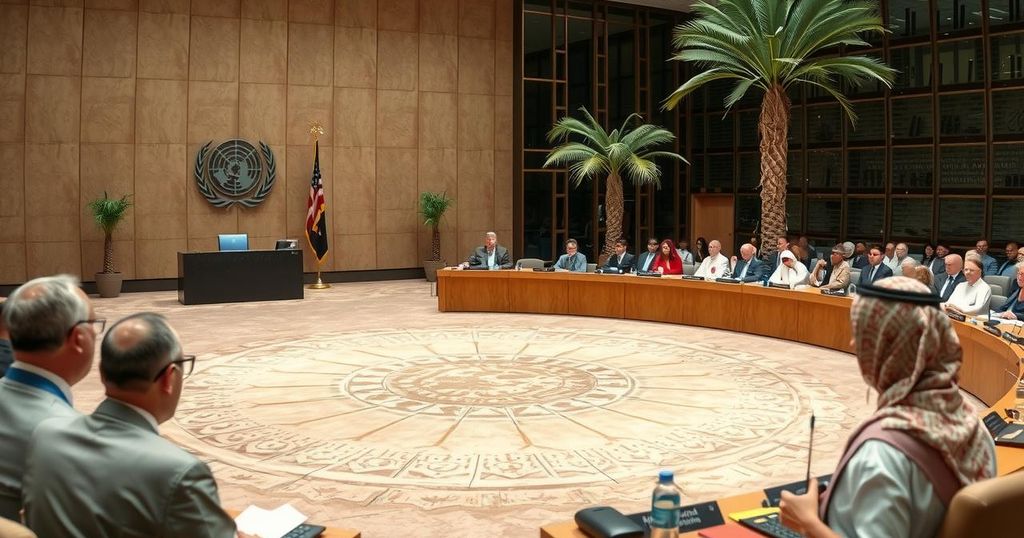The UNCCD’s COP16 meeting concluded in Riyadh without an agreement to combat global droughts. Despite discussions on establishing a future regime by COP17 in 2026, developing nations sought a binding protocol for accountability. Significant financial investments and a united effort are essential for addressing the growing impacts of drought, particularly in developing countries.
The recent United Nations Convention to Combat Desertification (UNCCD) meeting, COP16, held in Riyadh, Saudi Arabia, concluded without achieving an agreement to combat global droughts. This marks yet another setback following previous unsuccessful discussions on climate change topics such as biodiversity and plastic pollution. The COP16 meeting involved representatives from 196 nations and the European Union, which, despite making progress in establishing a framework for addressing drought, failed to create a binding protocol that many developing nations desired.
UNCCD Executive Secretary Ibrahim Thiaw stated that the parties require additional time to determine the most effective approach forward, emphasizing the pressing need for a comprehensive global drought regime by the upcoming COP17 in Mongolia in 2026. Droughts, exacerbated by human activity, incur annual costs exceeding $300 billion globally and are expected to impact 75% of the population by 2050.
During the talks, a delegate from an African country expressed disappointment, stating that member nations had anticipated a more binding commitment to hold governments accountable for preparing for and addressing drought challenges. The divide between the Global North and South was apparent, with developed nations preferring a more flexible framework that did not impose stringent obligations. Indigenous groups also advocated for stronger commitments, aiming to secure a protocol that mandates accountability.
Saudi Arabia, while hosting the conference as one of the leading oil producers often criticized for its environmental stances, declared its commitment to combating desertification and fostering international cooperation. The Saudi Environment Minister, Abdulrahman al-Fadley, elaborated on the kingdom’s initiatives to address the pressing issues of land degradation and drought. Prior to COP16, the UNCCD highlighted the urgency of restoring 1.5 billion hectares of land by 2030, necessitating an investment of at least $2.6 trillion globally.
The UNCCD is a crucial forum aimed at combating desertification and mitigating the impacts of drought, particularly in developing nations. As droughts become more prevalent due to climate change and environmental degradation, international cooperation becomes essential to develop strategies for resilience and adaptation. The meetings, held biennially, seek to create robust frameworks and commitments that ensure nations collectively respond to the growing threat of drought—a challenge that disproportionately affects vulnerable populations, especially in Africa.
In conclusion, the failure to reach a binding agreement at COP16 highlights the ongoing difficulties in addressing global drought challenges within the context of international climate negotiations. Despite significant discussions and intentions, the divide between developed and developing nations persists, complicating the efforts to formulate effective drought response strategies. Future conferences, particularly COP17 slated for 2026, will be crucial in determining whether the international community can overcome these disparities and establish more enforceable commitments.
Original Source: www.aljazeera.com






